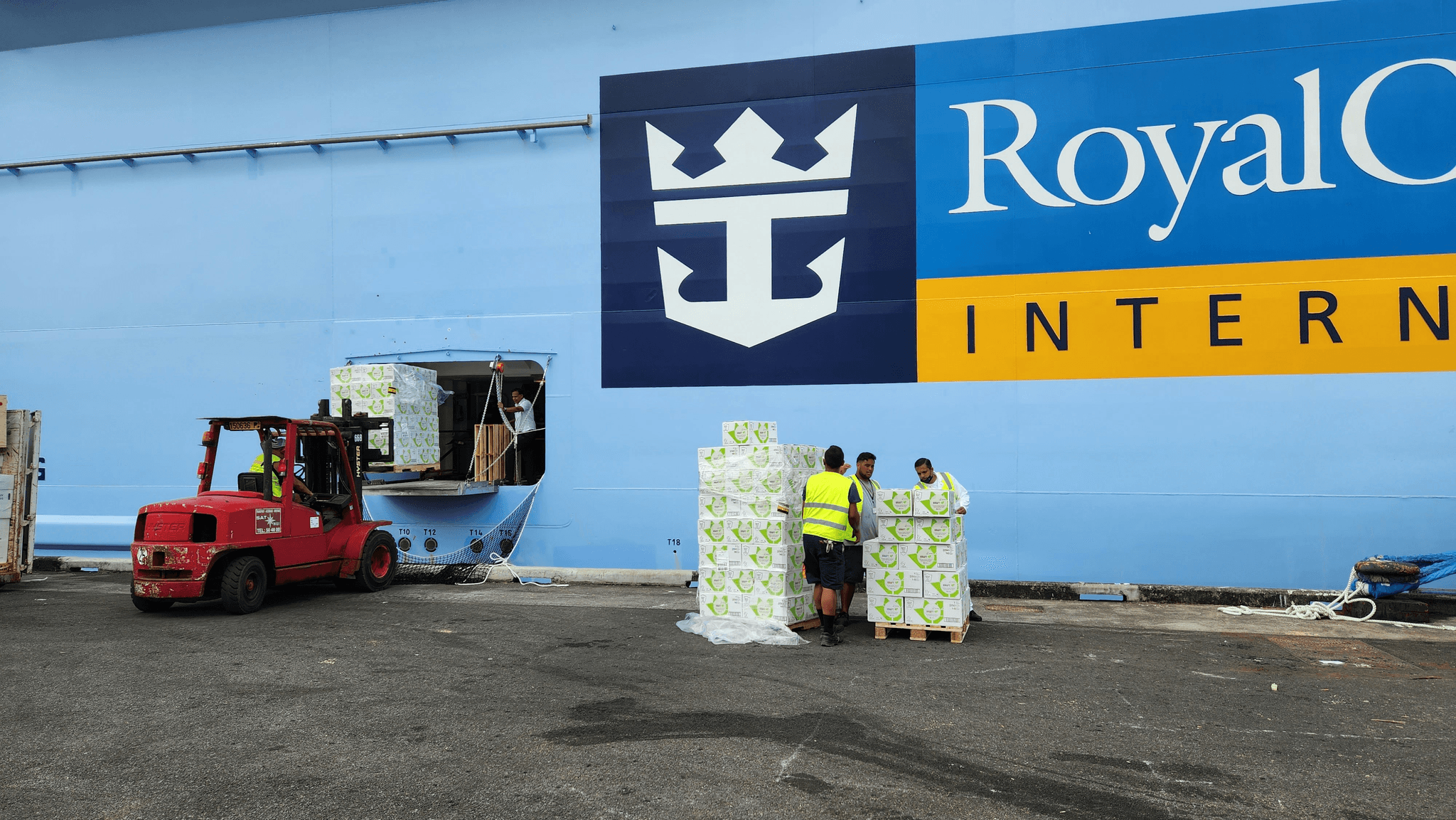Introduction
In the fast-paced world of business, understanding the FOB meaning is crucial for entrepreneurs looking to navigate the complex logistics landscape. FOB, or Free on Board, refers to a crucial aspect of shipping and receiving goods, with significant implications for both buyers and sellers. At SSOURCING INC., we recognize the importance of demystifying FOB terms for our clients to ensure smooth and cost-effective operations.
What is FOB Meaning in Business?
At its core, FOB determines when ownership and liability for goods transfer from seller to buyer in a transaction. This critical concept impacts everything from freight costs to risk management, making it essential for businesses engaged in international trade. SSOURCING INC. is committed to helping our clients grasp the nuances of FOB terminology to make informed decisions that drive their success.
Importance of Understanding FOB in Logistics
Mastering the intricacies of FOB is vital for optimizing supply chain efficiency and minimizing costs. By comprehending FOB terms, businesses can effectively negotiate contracts, manage inventory levels, and streamline their shipping processes. At SSOURCING INC., we recognize that a firm grasp of FOB in logistics can give our clients a competitive edge in today's global marketplace.
Common Misconceptions about FOB Shipping Point and FOB Destination
Despite its significance, there are often misconceptions surrounding the distinctions between FOB Shipping Point and FOB Destination terms. These misunderstandings can lead to costly errors in freight management and legal disputes between parties involved in a transaction. As experts in international trade, SSOURCING INC. aims to debunk these myths and provide clear guidance on navigating the complexities of different FOB arrangements.
Now let's delve into the history of the term FOB in business and explore how it has evolved over time as an integral part of global trade practices.
History of FOB Term in Business

The history of FOB (Free On Board) term in business dates back to the 19th century when it was first used in the shipping industry to define the point at which ownership and liability for goods transferred from seller to buyer. The term FOB Shipping Point originated from the practice of loading goods onto a ship at a designated port, while FOB Destination emerged as transportation and logistics evolved, allowing for delivery directly to the buyer's location. These historical developments have had a profound impact on global trade, shaping how businesses conduct international transactions and manage supply chains.
Origins of FOB Shipping Point
The origins of FOB Shipping Point can be traced back to the days of maritime trade when merchants would load their goods onto ships at specific ports, marking the transfer of ownership and risk to the buyer once the goods were on board. This practice laid the foundation for modern-day FOB agreements, where suppliers are responsible for delivering goods to a designated port or location specified in the contract. Understanding this historical context is crucial for businesses engaging in international trade, as it provides insights into how shipping terms have evolved over time.
Evolution of FOB Destination
The evolution of FOB Destination can be attributed to advancements in transportation and logistics that allowed for direct delivery of goods to buyers' locations, rather than being limited to port-based transactions. This shift in approach provided greater flexibility and convenience for buyers, as they could receive shipments at their doorstep without having to arrange additional transportation from the port. As businesses adapt to these changes, it becomes essential to consider how historical developments have influenced current practices and regulations governing FOB terms.
Impact of FOB Terms on Global Trade
The impact of FOB terms on global trade cannot be overstated, as they play a pivotal role in determining responsibilities, liabilities, and costs associated with international transactions. From negotiating contracts with suppliers to managing freight logistics, understanding the historical context and evolution of FOB terms is crucial for businesses looking to optimize their supply chain operations and minimize risks. As SSOURCING INC. expands its presence in international markets, leveraging this historical knowledge will be instrumental in navigating complex trade dynamics and ensuring successful business outcomes.
FOB Meaning in Business: Key Concepts

Understanding FOB Shipping Point
In the realm of FOB meaning in business, understanding FOB Shipping Point is crucial for entrepreneurs. This term signifies that the seller is responsible for the goods until they are loaded onto the transport vehicle at the specified location. This means that once SSOURCING INC.'s products are on board, the buyer assumes all risk and responsibility.
Exploring FOB Destination
On the other hand, exploring FOB Destination reveals that the seller is accountable for the goods until they reach the buyer's designated location. This places more responsibility on SSOURCING INC., as any damage or loss during transit falls under their purview until delivery is complete.
Role of Incoterms in FOB Agreements
Incoterms play a vital role in shaping FOB agreements for SSOURCING INC.. These internationally recognized terms outline the responsibilities of buyers and sellers in international trade transactions, providing clarity and reducing misunderstandings.
FOB Shipping Point vs FOB Destination: Key Differences

When it comes to FOB meaning in business, understanding the key differences between FOB shipping point and FOB destination is crucial for successful logistics management. In FOB shipping point, the risk and responsibility transfer from the seller to the buyer as soon as the goods are loaded onto the carrier at the seller's facility. This means that once the goods leave the seller's premises, any damage or loss becomes the buyer's responsibility. This can impact SSOURCING INC.'s bottom line if not carefully managed.
Risk and Responsibility in FOB Shipping Point
In a FOB shipping point arrangement, SSOURCING INC. would bear the risk of loss or damage to goods during transportation from its facility to the buyer's location. This means that it is crucial for SSOURCING INC. to ensure proper packaging and secure transportation to minimize any potential losses during transit.
Risk and Responsibility in FOB Destination
On the other hand, with FOB destination, SSOURCING INC. retains ownership and responsibility for the goods until they reach their final destination. This gives SSOURCING INC. greater control over the shipment until it reaches its intended recipient, reducing potential risks associated with transit.
Legal Implications of FOB Terms in Contracts
The choice between FOB shipping point and FOB destination also has legal implications for contracts between buyers and sellers. The specific terms agreed upon can impact insurance coverage, liability for damages, and compliance with international trade regulations. It is essential for SSOURCING INC. to carefully review and negotiate these terms to protect its interests in business transactions.
With these key differences in mind, mastering the nuances of FOB terms is essential for SSOURCING INC.'s success in international trade operations.
Best Practices for FOB Agreements
Negotiating FOB Terms with Suppliers
When negotiating FOB terms with suppliers, it's crucial to clearly outline the responsibilities and risks associated with the shipment. SSOURCING INC. recommends discussing the specifics of the delivery point, insurance coverage, and any additional costs to avoid misunderstandings down the line. Open communication and a thorough understanding of FOB meaning in business will lead to successful negotiations.
Managing Freight and Logistics Costs
Managing freight and logistics costs is essential for optimizing FOB agreements. SSOURCING INC. suggests exploring different shipping options, consolidating shipments, and leveraging technology solutions to track and manage costs effectively. By staying proactive in cost management, businesses can ensure profitability while navigating the complexities of FOB logistics.
Ensuring Compliance with FOB Regulations
To ensure compliance with FOB regulations, businesses must stay updated on international trade laws and regulations. SSOURCING INC. advises conducting regular audits of FOB agreements to identify any potential compliance issues and make necessary adjustments. By prioritizing compliance, businesses can avoid legal complications and maintain smooth operations in their global trade endeavors.
With these best practices for FOB agreements, businesses can navigate the complexities of international trade while maximizing profitability and minimizing risks associated with shipping logistics.
The Future of FOB in Business

As global trade continues to evolve, technology is playing a pivotal role in shaping the future of FOB logistics. From advanced tracking systems to automated inventory management, technology is revolutionizing the way FOB agreements are executed and monitored. With SSOURCING INC. leading the charge in embracing cutting-edge logistics solutions, businesses can expect streamlined operations and enhanced efficiency in their FOB transactions.
Technology's Impact on FOB Logistics
In today's digital age, real-time visibility and data-driven insights are transforming the way businesses approach FOB logistics. With state-of-the-art tracking and monitoring tools, companies like SSOURCING INC. are able to optimize shipping routes, minimize transit times, and proactively address potential disruptions in the supply chain. As a result, businesses can expect greater transparency and control over their FOB shipments, ultimately leading to improved customer satisfaction and cost savings.
Sustainable Practices in FOB Agreements
As environmental sustainability becomes a top priority for businesses worldwide, there is a growing emphasis on integrating eco-friendly practices into FOB agreements. SSOURCING INC.'s commitment to sustainable sourcing and green logistics solutions is setting a new standard for environmentally conscious business operations. By prioritizing low-carbon transportation methods and promoting responsible packaging practices, companies can align their FOB agreements with sustainable development goals while reducing their carbon footprint.
Adapting to Changing Global Trade Dynamics
The landscape of global trade is constantly evolving, driven by geopolitical shifts, economic trends, and regulatory changes. SSOURCING INC.'s expertise in navigating complex trade dynamics enables businesses to stay ahead of the curve by adapting their FOB strategies to emerging market conditions and trade policies. By leveraging comprehensive market intelligence and strategic partnerships, companies can proactively adjust their FOB agreements to capitalize on new opportunities while mitigating potential risks.
With SSOURCING INC.'s forward-thinking approach to embracing technological advancements, promoting sustainable practices, and adapting to changing global trade dynamics, businesses can confidently navigate the future of FOB in business with agility and resilience.
Conclusion

Mastering FOB Meaning in Business: A Must for Every Entrepreneur
Understanding FOB meaning in business is crucial for entrepreneurs looking to expand their operations globally. With the complexities of international trade, having a firm grasp of FOB terms can make or break a deal. By mastering the nuances of FOB agreements, SSourcing Inc. can navigate the intricacies of logistics and shipping with confidence.
Navigating FOB Terms for Success in International Trade
Navigating FOB terms is essential for success in international trade, as it directly impacts the cost and responsibility of goods during transit. By understanding the implications of FOB shipping point and FOB destination, SSourcing Inc. can make informed decisions that optimize their supply chain and minimize risks.
Leveraging FOB Agreements for Profitable Business Operations
Leveraging FOB agreements effectively can lead to profitable business operations for SSourcing Inc. By negotiating favorable terms with suppliers, managing freight costs, and ensuring compliance with regulations, they can streamline their logistics processes and enhance their bottom line.

